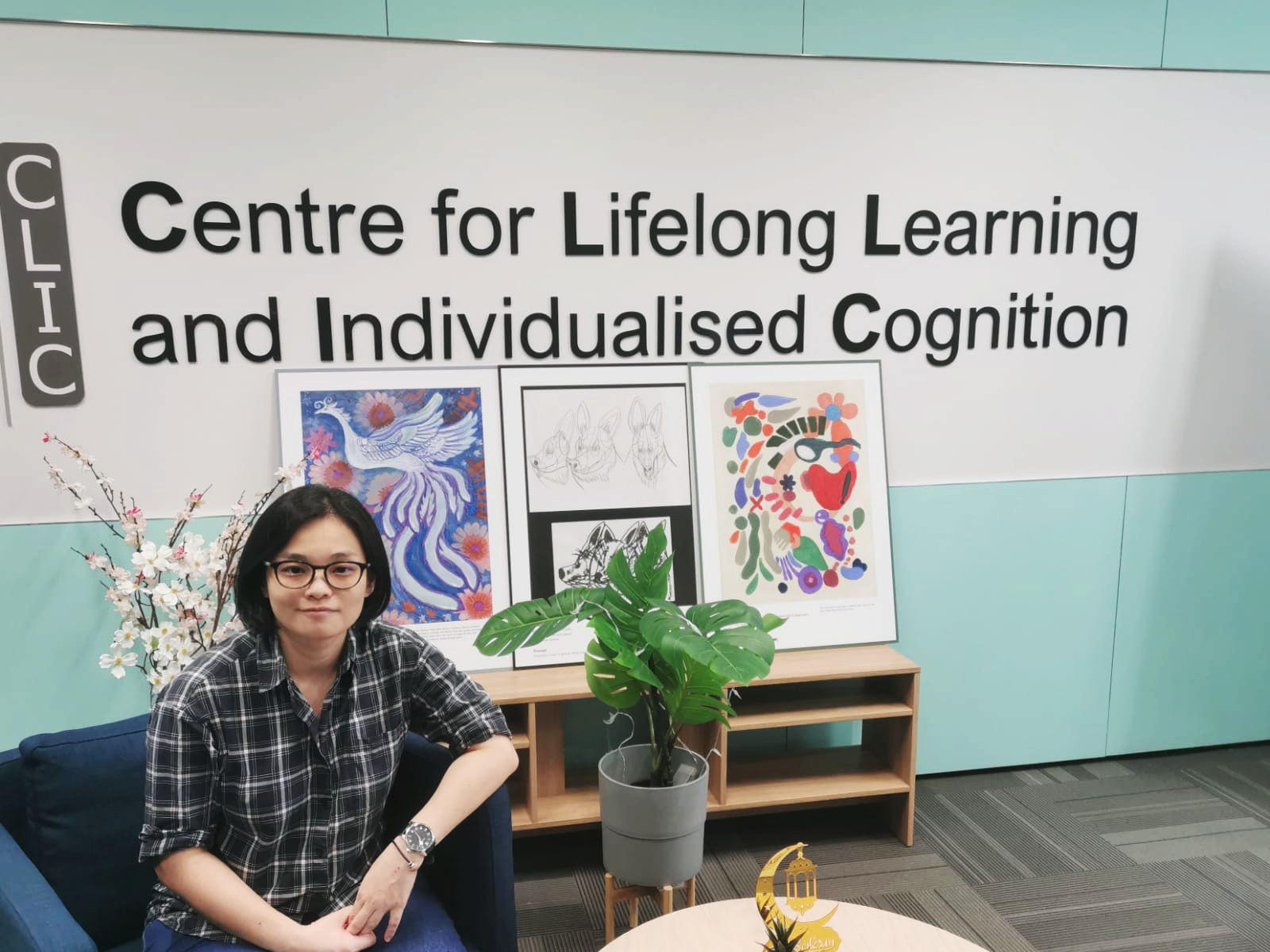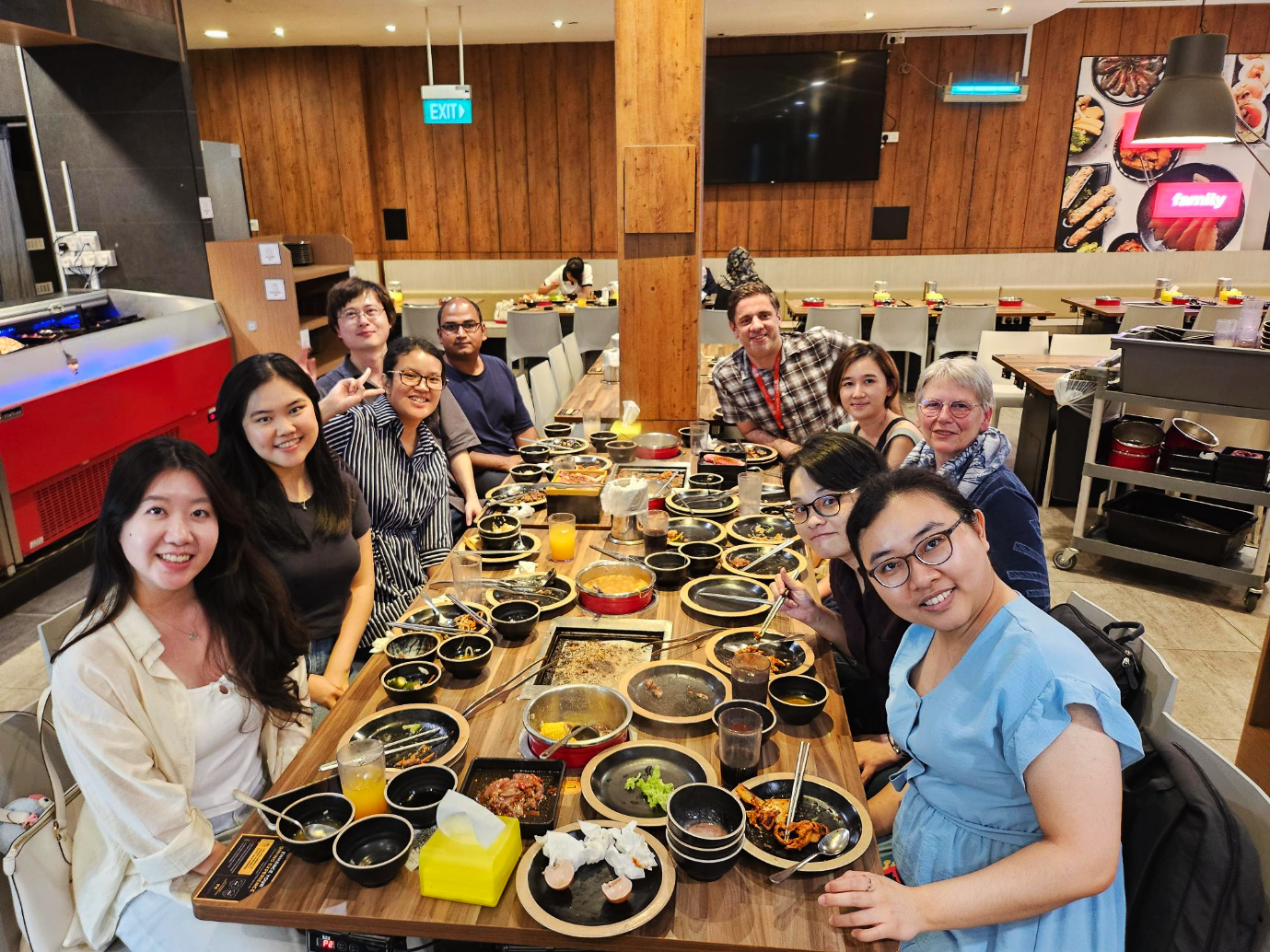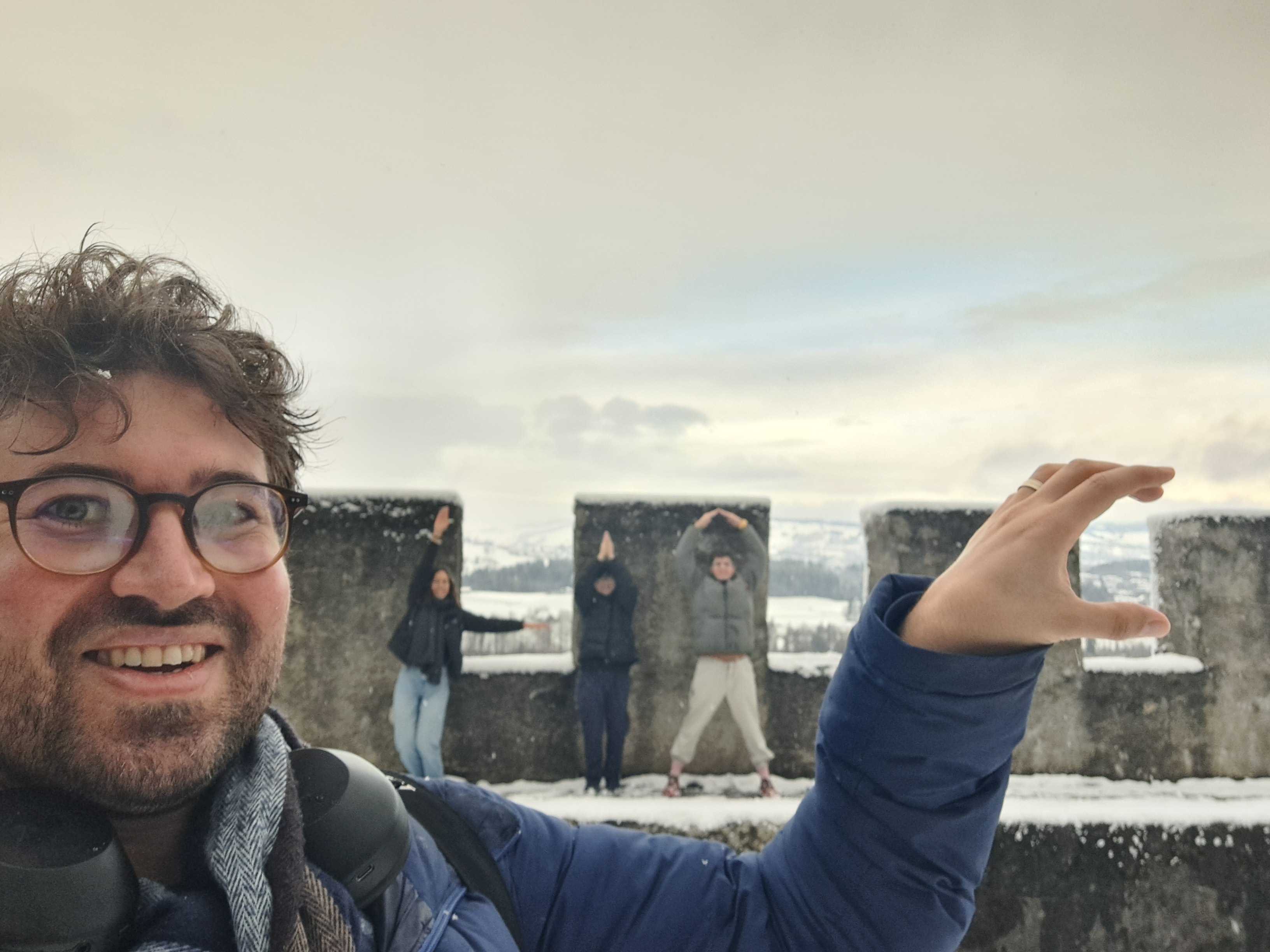
Cover image shows Emma in CLIC’s office.
I am a PhD candidate with the Centre for Lifelong Learning and Individualised Cognition (CLIC), which aims to bridge the science of learning with real-world applications that support people across the lifespan. My doctoral research explores the roles of cognitive flexibility and career adaptability in career development.
Before joining CLIC, I had already spent several years living and working in Singapore, which gave me a strong understanding of the local research and career landscape. I collaborated with research teams from Singapore, Japan, and Switzerland on projects such as career aspirations, neuromarketing, and financial resilience.
These experiences shaped my understanding of the region and laid the foundation for my research. It also introduced me to the concept of adaptability, a key competency that reflects one’s ability to navigate a constantly evolving work landscape. This prompted me to explore the underlying connection between flexibility and adaptability, especially in how both relate to managing novelty and uncertainty.
I found that it is important to enhance cognitive flexibility and working memory—alongside career adaptability—to improve career outcomes and academic performance. For example, being ready to adapt to new situations and responding proactively could impact one’s career success and income level. My research suggests tailored interventions and early educational programmes that integrate cognitive and career adaptability training to build resilience and prepare individuals for career transitions.
One thing I valued about working at CLIC is its interdisciplinary spirit and collaborative culture, which has created a genuinely supportive environment for exploring difficult questions and challenges without feeling boxed in. I worked with colleagues from diverse backgrounds, each bringing unique perspectives and skill sets to the project.
This diversity has shown me how powerful collaboration can be when making sense of something as complex as human flexibility.
I completed my PhD oral defence in March 2025. Moving forward, I plan to continue working with CLIC to develop evidence-based tools and strategies that “nudge” people towards more flexible thinking in their career development.
I am incredibly grateful to my mentors at both NTU and Cambridge who never confined us to rigid paths. Instead, they encouraged us to take risks, stay curious, and follow ideas even when they lead somewhere unexpected. I would also like to thank my supervisors, Assoc Prof Georgios Christopoulos and Prof Annabel Chen, who encouraged me to move beyond conventional approaches to cognitive flexibility.

Emma (second from the right) with colleagues from CLIC, including the Deputy Director, Prof Henriëtte Hendriks (third from the right), and Principal Investigator, Assoc Prof Georgios Christopoulos (top right).
CLIC is a collaboration between the University of Cambridge and Nanyang Technological University (NTU) that brings together neuroscience, psychology, linguistics, and education to advance lifelong learning and cognitive abilities. The programme is supported by the National Research Foundation, Prime Minister’s Office, Singapore, under its Campus for Research Excellence and Technological Enterprise (CREATE) programme.


